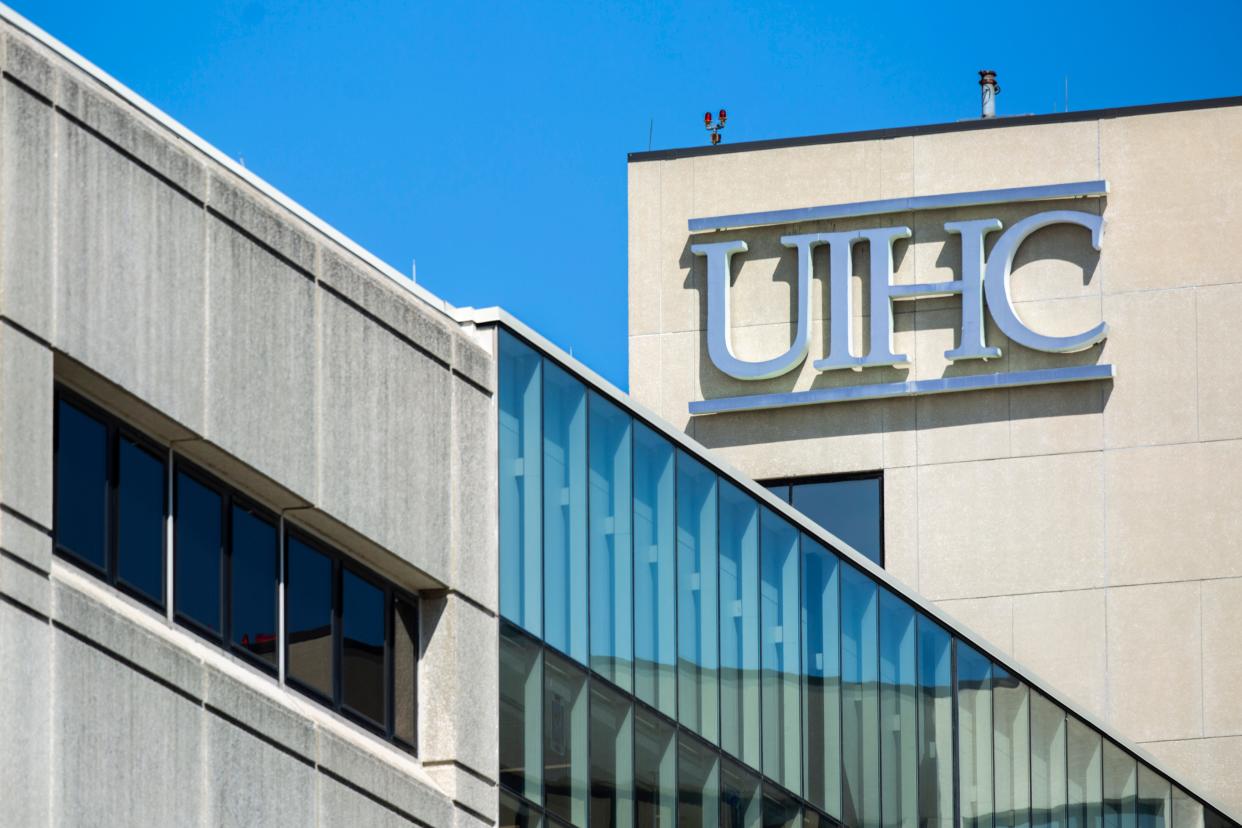University of Iowa hospitals reach $15 million settlement with staff

The Board of Regents has agreed to pay $15 million to settle a class-action lawsuit with current and former University of Iowa Hospitals & Clinics employees.
The healthcare system and about 11,000 workers have been engaged in a legal fight since 2019, when employees alleged that managers didn't pay overtime, bonuses or accrued leave as quickly as state and federal laws require. U.S. District Court Judge Stephanie Rose granted part of the workers' motion for summary judgment in March, but attorneys for the Board of Regents raised the specter of appealing that ruling.
In a motion asking the judge to approve a settlement filed Friday, lawyers for the employees wrote that their side could have won $64 million. But they added that they believed a higher court could have overturned a significant portion of the workers' claim, reducing the amount owed to $11 million.
"Based on these concerns, Plaintiffs believe they have obtained a great result for the class members," wrote the attorneys, Boston-based Harold Lichten and Nate Willems, of Cedar Rapids.
Laura Shoemaker, a spokesperson for the healthcare system, confirmed the settlement in a statement Saturday. She declined to say why the Board of Regents didn't pursue an appeal.
"We are pleased to reach a final resolution that is in the best interest of University of Iowa Hospitals & Clinics (UIHC) employees, who are critical to our ability to deliver excellent patient care for all Iowans," Shoemaker said in an email.
RelatedIowa workers lose $900 million to wage theft per year, report finds
11,000 workers will receive a share of the $11.6 million settlement
According to the proposed settlement, the employees' lawyers will receive about $3.4 million. The six employees who led the lawsuit will each receive $10,000. The rest of the 11,000 workers will each receive a share of the remaining $11.6 million, based on how many payments employees allegedly received from the hospital later than the law allows.
About 3,600 workers are each eligible for an extra $100 in the settlement because they received overtime payments under a separate, federal law that the healthcare system allegedly violated. Another 5,600 employees are eligible for $50 each because the healthcare system allegedly did not quickly enough pay them for accrued leave after their terminations.
In her March ruling, Rose found that the Board of Regents did not need to pay any damages for those supposedly late termination payments. But the Board agreed to make a payment under that category anyway.
According to Friday's motion, the bulk of the payments will go to a small set of the class. About 80% of the money will go to one-third of the employees — about 3,700 workers, who will get an average of about $2,500.
The payments to the workers in the class will receive damages, meaning they are payments on top of the owed compensation, which the healthcare system already paid.
The class consisted of both healthcare employees and support services staff. When the workers filed the lawsuit in October 2019, they argued that the healthcare system violated state law beginning two years earlier for a couple of reasons.
What does the Iowa law say about payments and how was it allegedly violated?
In Iowa, companies must pay workers within 12 days of the end of a pay period. The workers argued that two of the healthcare system's payment schedules violated that law.
First, managers paid support services employees on the first of each month. But they allegedly waited two months to pay overtime. A worker who accrued overtime in January would not see that extra money until the beginning of March.
Healthcare employees, meanwhile, received payments every six weeks. But the managers allegedly didn't issue overtime payments until the following pay cycle. A worker could wait 11 weeks to see the overtime compensation.
RelatedTwo Micronesians plead guilty to labor trafficking at JBS Ottumwa plant
Lawyers for the system argued that employees agreed to this arrangement. They said that unionized employees approved a collective bargaining agreement that allowed the system to withhold to delay the overtime payments. They also said workers signed offer letters that told them that an operations manual governed their employment.
In her March ruling, Rose rejected this argument. She said union officials had objected to the overtime payment schedule in 2018, proof that workers didn't agree with the system's policy. She also said that the offer letters didn't specify what the operations manual said about overtime payments, meaning many workers likely didn't agree to this payment schedule.
According to Friday's motion, the Board of Regents' lawyers prepared to raise other arguments if they took the case to the U.S. Court of Appeals or the Iowa Supreme Court. The lawyers allegedly would have told judges that employees accrued overtime from the halfway mark of one month to the halfway mark of the next.
If judges sided with the healthcare system on this issue, attorneys for the workers wrote, the managers could successfully argue that "the bulk of the employees did not receive payments late. The healthcare system also adjusted its payment schedules to move money to employees faster in November 2020, a year after the workers filed the lawsuit."
This article originally appeared on Des Moines Register: University of Iowa hospitals settle lawsuit over overtime pay, bonuses

